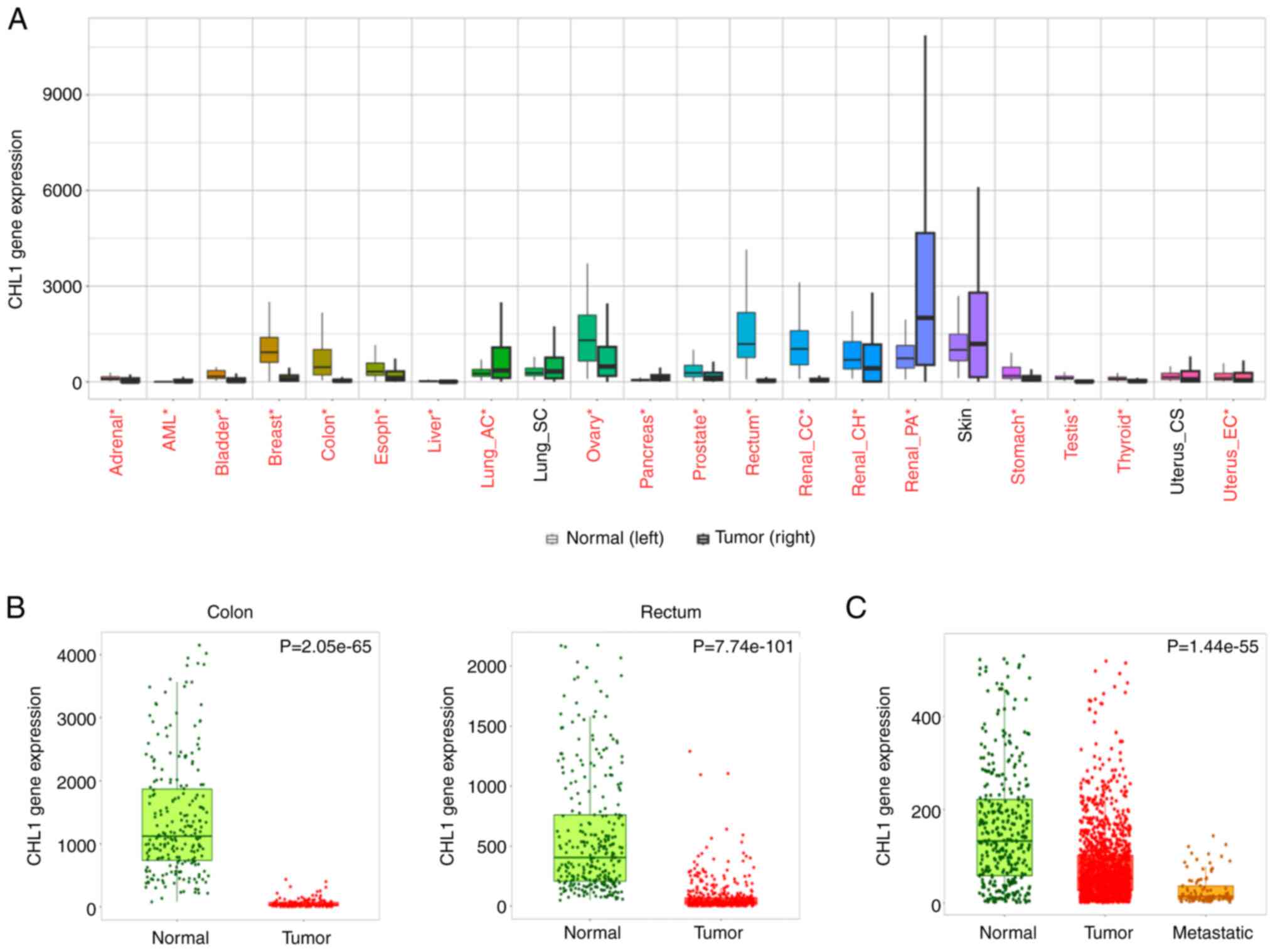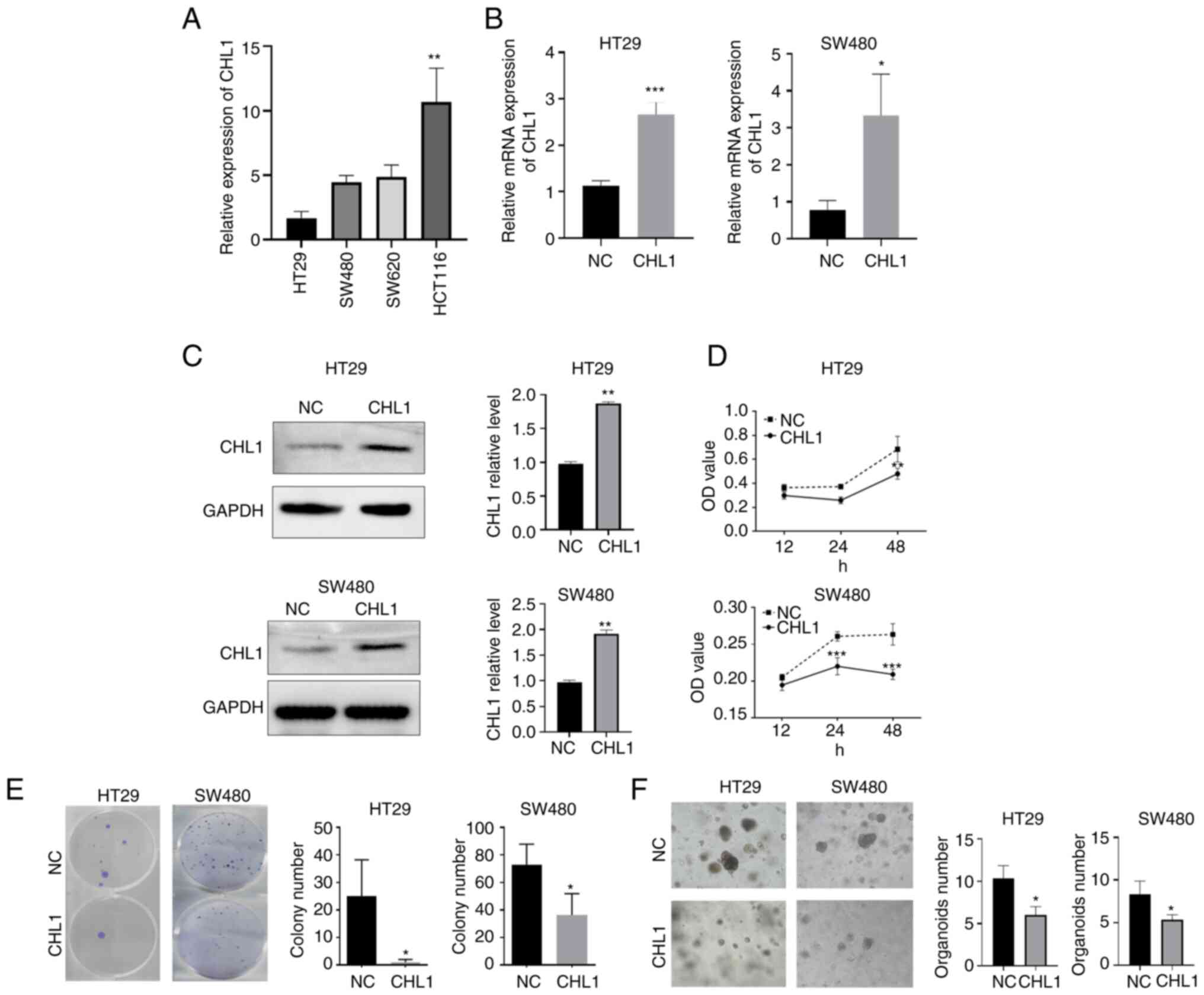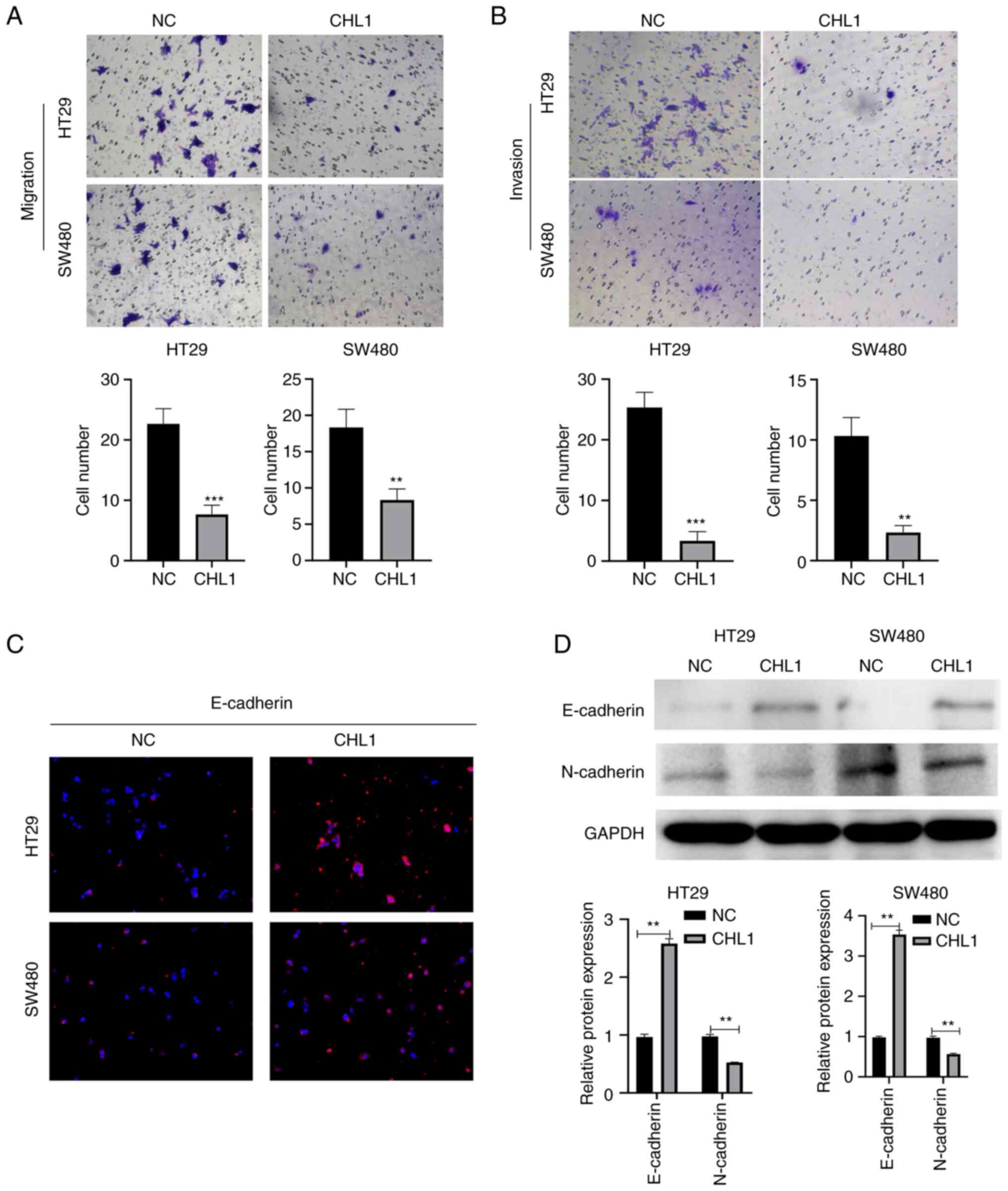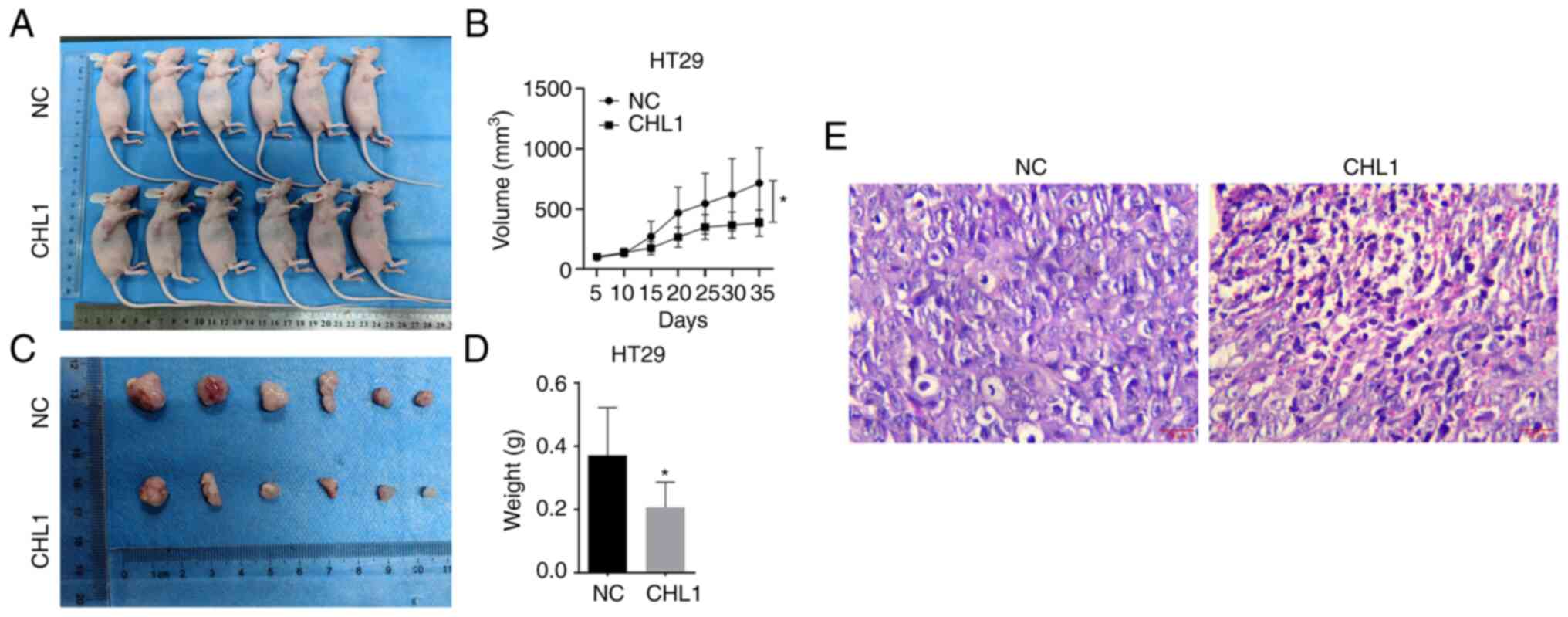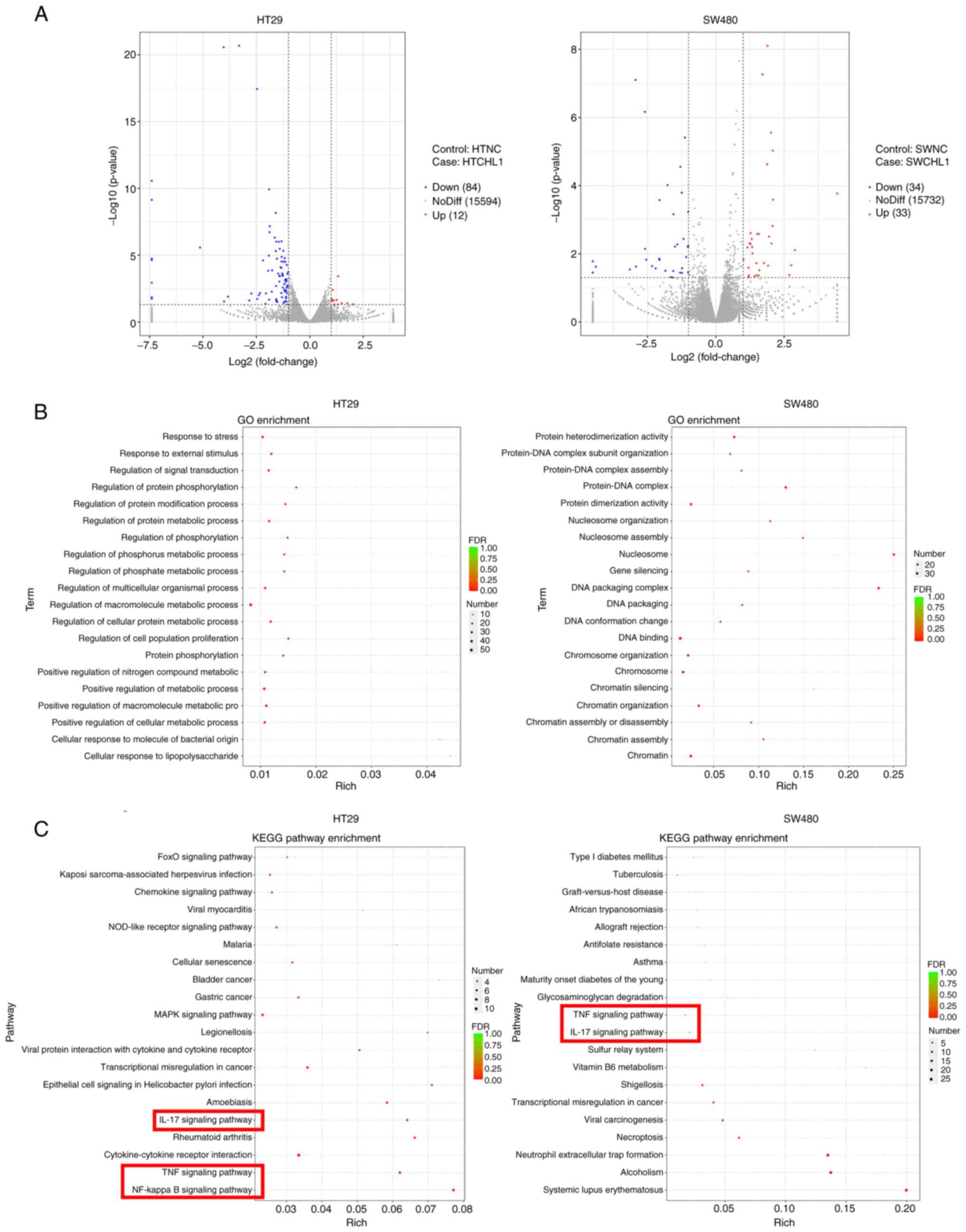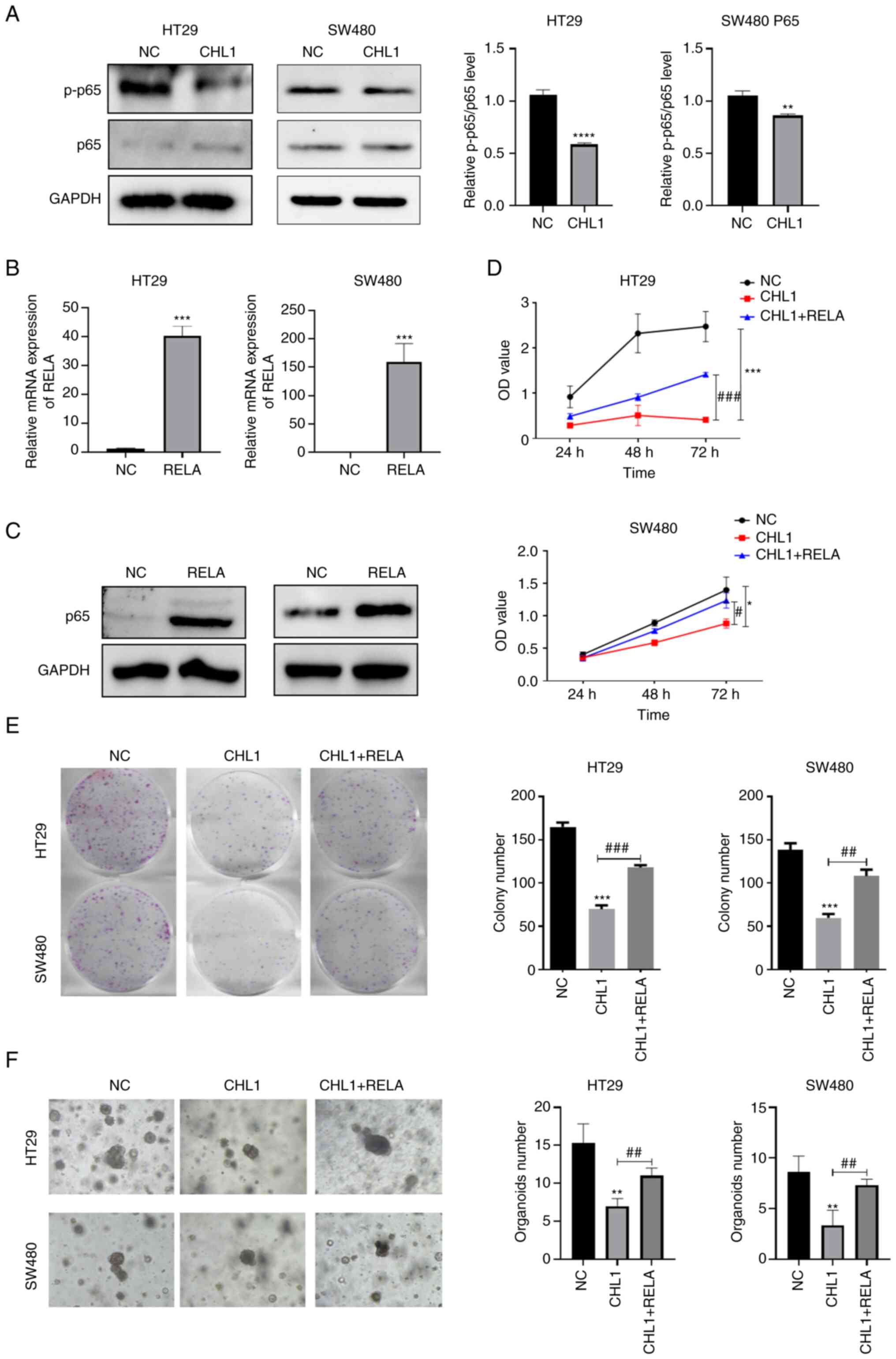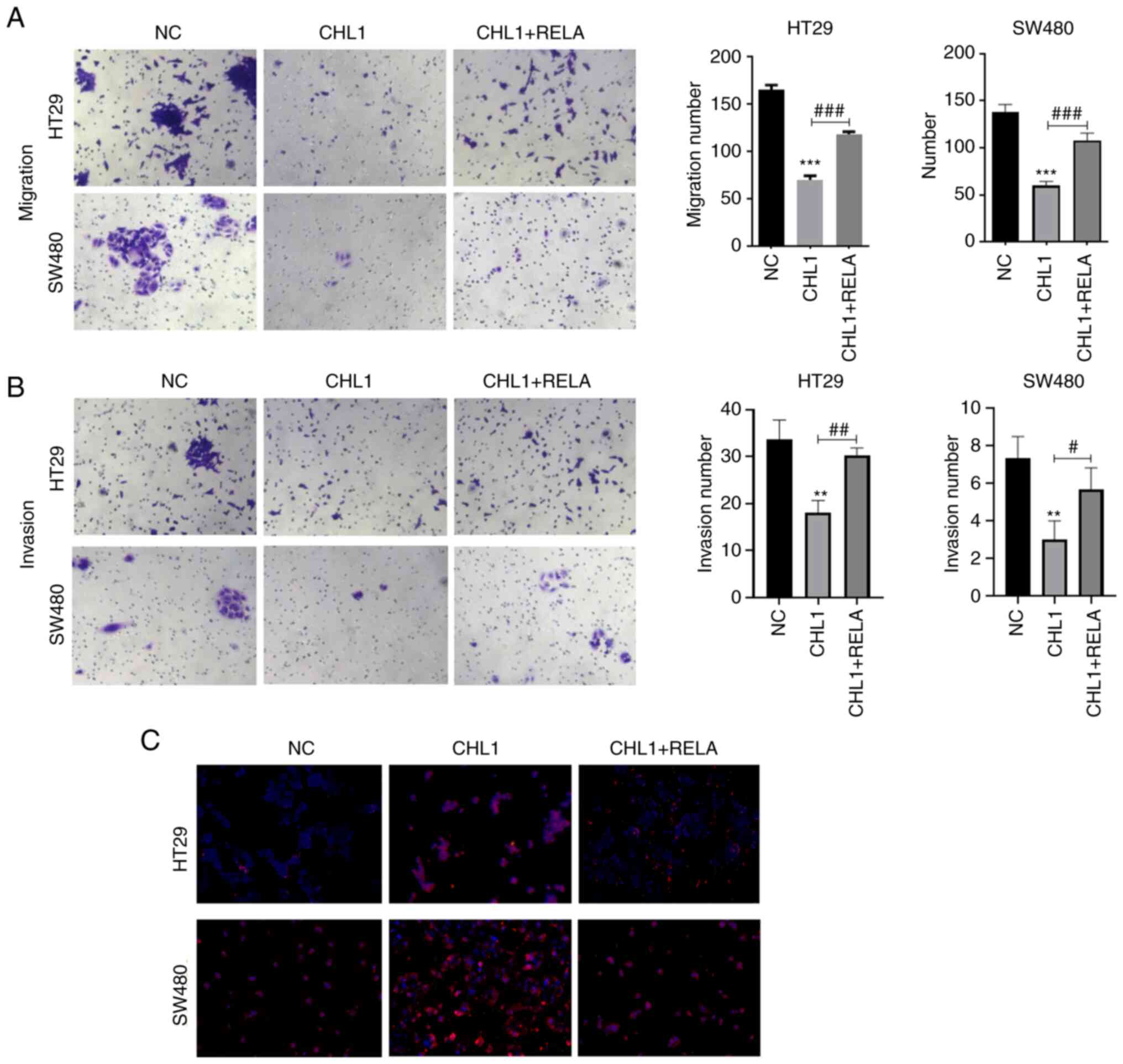|
1
|
Baidoun F, Elshiwy K, Elkeraie Y, Merjaneh
Z, Khoudari G, Sarmini MT, Gad M, Al-Husseini M and Saad A:
Colorectal cancer epidemiology: Recent trends and impact on
outcomes. Curr Drug Targets. 22:998–1009. 2021.PubMed/NCBI View Article : Google Scholar
|
|
2
|
Biller LH and Schrag D: Diagnosis and
treatment of metastatic colorectal cancer: A review. JAMA.
325:669–685. 2021.PubMed/NCBI View Article : Google Scholar
|
|
3
|
Coppedè F, Lopomo A, Spisni R and Migliore
L: Genetic and epigenetic biomarkers for diagnosis, prognosis and
treatment of colorectal cancer. World J Gastroenterol. 20:943–956.
2014.PubMed/NCBI View Article : Google Scholar
|
|
4
|
Kanth P and Inadomi JM: Screening and
prevention of colorectal cancer. BMJ. 374(n1855)2021.PubMed/NCBI View Article : Google Scholar
|
|
5
|
Zygulska AL and Pierzchalski P: Novel
diagnostic biomarkers in colorectal cancer. Int J Mol Sci.
23(852)2022.PubMed/NCBI View Article : Google Scholar
|
|
6
|
Pidíkova P, Reis R and Herichova I: miRNA
clusters with down-regulated expression in human colorectal cancer
and their regulation. Int J Mol Sci. 21(4633)2020.PubMed/NCBI View Article : Google Scholar
|
|
7
|
Holm J, Hillenbrand R, Steuber V, Bartsch
U, Moos M, Lübbert H, Montag D and Schachner M: Structural features
of a close homologue of L1 (CHL1) in the mouse: A new member of the
L1 family of neural recognition molecules. Eur J Neurosci.
8:1613–1629. 1996.PubMed/NCBI View Article : Google Scholar
|
|
8
|
Tam GW, van de Lagemaat LN, Redon R,
Strathdee KE, Croning MD, Malloy MP, Muir WJ, Pickard BS, Deary IJ,
Blackwood DH, et al: Confirmed rare copy number variants implicate
novel genes in schizophrenia. Biochem Soc Trans. 38:445–451.
2010.PubMed/NCBI View Article : Google Scholar
|
|
9
|
Senchenko VN, Krasnov GS, Dmitriev AA,
Kudryavtseva AV, Anedchenko EA, Braga EA, Pronina IV, Kondratieva
TT, Ivanov SV, Zabarovsky ER and Lerman MI: Differential expression
of CHL1 gene during development of major human cancers. PLoS One.
6(e15612)2011.PubMed/NCBI View Article : Google Scholar
|
|
10
|
Cai X, Hu B, Liu S, Liu M, Huang Y, Lei P,
Zhang Z, He Z, Zhang L and Huang R: Overexpression of close homolog
of L1 enhances the chemosensitivity of lung cancer cells via
inhibition of the Akt pathway. Oncol Lett. 20(111)2020.PubMed/NCBI View Article : Google Scholar
|
|
11
|
Chen J, Jiang C, Fu L, Zhu CL, Xiang YQ,
Jiang LX, Chen Q, Liu WM, Chen JN, Zhang LY, et al: CHL1 suppresses
tumor growth and metastasis in nasopharyngeal carcinoma by
repressing PI3K/AKT signaling pathway via interaction with Integrin
β1 and Merlin. Int J Biol Sci. 15:1802–1815. 2019.PubMed/NCBI View Article : Google Scholar
|
|
12
|
Ognibene M, Pagnan G, Marimpietri D,
Cangelosi D, Cilli M, Benedetti MC, Boldrini R, Garaventa A,
Frassoni F, Eva A, et al: CHL1 gene acts as a tumor suppressor in
human neuroblastoma. Oncotarget. 9:25903–25921. 2018.PubMed/NCBI View Article : Google Scholar
|
|
13
|
Qin M, Gao X, Luo W, Ou K, Lu H, Liu H and
Zhuang Q: Expression of CHL1 in clear cell renal cell carcinoma and
its association with prognosis. Appl Immunohistochem Mol Morphol.
30:209–214. 2022.PubMed/NCBI View Article : Google Scholar
|
|
14
|
Yang Z, Xie Q, Hu CL, Jiang Q, Shen HF,
Schachner M and Zhao WJ: CHL1 is expressed and functions as a
malignancy promoter in glioma cells. Front Mol Neurosci.
10(324)2017.PubMed/NCBI View Article : Google Scholar
|
|
15
|
Yu W, Zhu K, Wang Y, Yu H and Guo J:
Overexpression of miR-21-5p promotes proliferation and invasion of
colon adenocarcinoma cells through targeting CHL1. Mol Med.
24(36)2018.PubMed/NCBI View Article : Google Scholar
|
|
16
|
Wang Z, Wang Q, Xu G, Meng N, Huang X,
Jiang Z, Chen C, Zhang Y, Chen J, Li A, et al: The long noncoding
RNA CRAL reverses cisplatin resistance via the miR-505/CYLD/AKT
axis in human gastric cancer cells. RNA Biol. 17:1576–1589.
2020.PubMed/NCBI View Article : Google Scholar
|
|
17
|
Livak KJ and Schmittgen TD: Analysis of
relative gene expression data using real-time quantitative PCR and
the 2(-Delta Delta C(T)) method. Methods. 25:402–408.
2001.PubMed/NCBI View Article : Google Scholar
|
|
18
|
Franken NA, Rodermond HM, Stap J, Haveman
J and van Bree C: Clonogenic assay of cells in vitro. Nat Protoc.
1:2315–2319. 2006.PubMed/NCBI View Article : Google Scholar
|
|
19
|
Hu X, Wang P, Qu C, Zhang H and Li L:
Circular RNA Circ_0000677 promotes cell proliferation by regulating
microRNA-106b-5p/CCND1 in non-small cell lung cancer.
Bioengineered. 12:6229–6239. 2021.PubMed/NCBI View Article : Google Scholar
|
|
20
|
Ritchie ME, Phipson B, Wu D, Hu Y, Law CW,
Shi W and Smyth GK: limma powers differential expression analyses
for RNA-sequencing and microarray studies. Nucleic Acids Res.
43(e47)2015.PubMed/NCBI View Article : Google Scholar
|
|
21
|
Dennis G Jr, Sherman BT, Hosack DA, Yang
J, Gao W, Lane HC and Lempicki RA: DAVID: Database for annotation,
visualization, and integrated discovery. Genome Biol.
4(P3)2003.PubMed/NCBI
|
|
22
|
Fearon ER: Molecular genetics of
colorectal cancer. Annu Rev Pathol. 6:479–507. 2011.PubMed/NCBI View Article : Google Scholar
|
|
23
|
Jafarzadeh M and Soltani BM: MiRNA-Wnt
signaling regulatory network in colorectal cancer. J Biochem Mol
Toxicol. 35(e22883)2021.PubMed/NCBI View Article : Google Scholar
|
|
24
|
He LH, Ma Q, Shi YH, Ge J, Zhao HM, Li SF
and Tong ZS: CHL1 is involved in human breast tumorigenesis and
progression. Biochem Biophys Res Commun. 438:433–438.
2013.PubMed/NCBI View Article : Google Scholar
|
|
25
|
Tang H, Jiang L, Zhu C, Liu R, Wu Y, Yan
Q, Liu M, Jia Y, Chen J, Qin Y, et al: Loss of cell adhesion
molecule L1 like promotes tumor growth and metastasis in esophageal
squamous cell carcinoma. Oncogene. 38:3119–3133. 2019.PubMed/NCBI View Article : Google Scholar
|
|
26
|
Mendonsa AM, Na TY and Gumbiner BM:
E-cadherin in contact inhibition and cancer. Oncogene.
37:4769–4780. 2018.PubMed/NCBI View Article : Google Scholar
|
|
27
|
Canel M, Serrels A, Frame MC and Brunton
VG: E-cadherin-integrin crosstalk in cancer invasion and
metastasis. J Cell Sci. 126:393–401. 2013.PubMed/NCBI View Article : Google Scholar
|
|
28
|
Daulagala AC, Bridges MC and Kourtidis A:
E-cadherin beyond structure: A signaling hub in colon homeostasis
and disease. Int J Mol Sci. 20(2756)2019.PubMed/NCBI View Article : Google Scholar
|
|
29
|
Wang J, Cai H, Liu Q, Xia Y, Xing L, Zuo
Q, Zhang Y, Chen C, Xu K, Yin P and Chen T: Cinobufacini inhibits
colon cancer invasion and metastasis via suppressing Wnt/β-catenin
signaling pathway and EMT. Am J Chin Med. 48:703–718.
2020.PubMed/NCBI View Article : Google Scholar
|
|
30
|
Yamada A, Yu P, Lin W, Okugawa Y, Boland
CR and Goel A: A RNA-sequencing approach for the identification of
novel long non-coding RNA biomarkers in colorectal cancer. Sci Rep.
8(575)2018.PubMed/NCBI View Article : Google Scholar
|
|
31
|
Zhai X, Xue Q, Liu Q, Guo Y and Chen Z:
Colon cancer recurrence-associated genes revealed by WGCNA
co-expression network analysis. Mol Med Rep. 16:6499–6505.
2017.PubMed/NCBI View Article : Google Scholar
|
|
32
|
Wu Y and Zhou BP:
TNF-alpha/NF-kappaB/Snail pathway in cancer cell migration and
invasion. Br J Cancer. 102:639–644. 2010.PubMed/NCBI View Article : Google Scholar
|
|
33
|
Yan T, Tan Y, Deng G, Sun Z, Liu B, Wang
Y, Yuan F, Sun Q, Hu P, Gao L, et al: TGF-β induces GBM mesenchymal
transition through upregulation of CLDN4 and nuclear translocation
to activate TNF-α/NF-κB signal pathway. Cell Death Dis.
13(339)2022.PubMed/NCBI View Article : Google Scholar
|
|
34
|
Karin M, Cao Y, Greten FR and Li ZW:
NF-kappaB in cancer: From innocent bystander to major culprit. Nat
Rev Cancer. 2:301–310. 2002.PubMed/NCBI View
Article : Google Scholar
|
|
35
|
Inoue J, Gohda J, Akiyama T and Semba K:
NF-kappaB activation in development and progression of cancer.
Cancer Sci. 98:268–274. 2007.PubMed/NCBI View Article : Google Scholar
|
|
36
|
Pozniak PD, White MK and Khalili K:
TNF-α/NF-κB signaling in the CNS: Possible connection to EPHB2. J
Neuroimmune Pharmacol. 9:133–141. 2014.PubMed/NCBI View Article : Google Scholar
|
|
37
|
Seo GS: The role of NF-kappaB in colon
cancer. Korean J Gastroenterol. 57:3–7. 2011.PubMed/NCBI View Article : Google Scholar : (In Korean).
|
|
38
|
Wang L, Niu Z, Wang X, Li Z, Liu Y, Luo F
and Yan X: PHD2 exerts anti-cancer and anti-inflammatory effects in
colon cancer xenografts mice via attenuating NF-κB activity. Life
Sci. 242(117167)2020.PubMed/NCBI View Article : Google Scholar
|
|
39
|
Bakshi HA, Quinn GA, Nasef MM, Mishra V,
Aljabali AAA, El-Tanani M, Serrano-Aroca Á, Webba Da Silva M,
McCarron PA and Tambuwala MM: Crocin inhibits angiogenesis and
metastasis in colon cancer via TNF-α/NF-kB/VEGF pathways. Cells.
11(1502)2022.PubMed/NCBI View Article : Google Scholar
|
|
40
|
Haefner B: NF-kappa B: Arresting a major
culprit in cancer. Drug Discov Today. 7:653–663. 2002.PubMed/NCBI View Article : Google Scholar
|
|
41
|
Nairon KG, DePalma TJ, Zent JM, Leight JL
and Skardal A: Tumor cell-conditioned media drives collagen
remodeling via fibroblast and pericyte activation in an in vitro
premetastatic niche model. iScience. 25(104645)2022.PubMed/NCBI View Article : Google Scholar
|
|
42
|
Subauste MC, Kupriyanova TA, Conn EM, Ardi
VC, Quigley JP and Deryugina EI: Evaluation of metastatic and
angiogenic potentials of human colon carcinoma cells in chick
embryo model systems. Clin Exp Metastasis. 26:1033–1047.
2009.PubMed/NCBI View Article : Google Scholar
|















